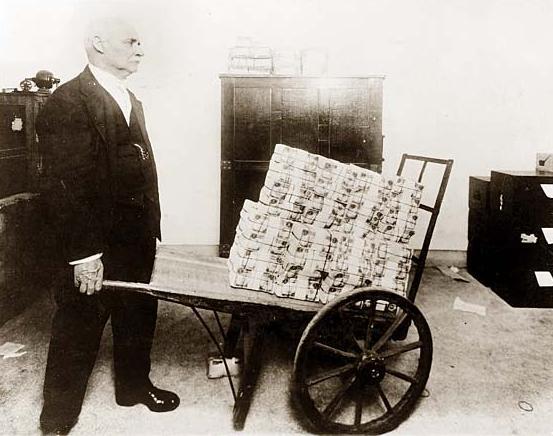I’m not an economist so I don’t know if a currency scheme cooked up by Douglas Coupland (also not an economist) would work or have unintended consequences, but here’s the gist of it from his Financial Times column:
“What if the government were to have, say, a ‘currency flush’? Basically, word could be broadcast that as of January 1 2016, the government will no longer honour any hundred-dollar bill printed before December 31 2013. People around the world with socks, suitcases and safety deposit boxes full of hundreds would have two years to redeem or spend their cash, and quick. What would happen?
Well, such a currency flush wouldn’t necessarily affect everyday people too much. People who work in bakeries, teach high school or drive taxis tend not to have suitcases full of hundreds in their universe – nor have much sympathy for those who do. But for those who do have stashes, there would be a two-year window to convert this cash into services and goods. The problem is that it looks very suspicious to walk into a Mercedes-Benz dealership and buy an S-Class with $87,000 in cash. Or to buy a Montauk summer house for millions. Or a boat. Or jewels. Or anything, really. Divesting oneself of soon-to-be valueless hundreds would require great skill in not drawing attention to oneself. At the very least, suitcase owners would be eating at expensive restaurants, buying expensive plane tickets and living it up for two brief years. What a boon to the economy for zero effort! And near the end of the flush, there might be a huge bump in the number of thousand-dollar lap dances and bar tips – but then that revenue would have to be recorded and taxed. More money in the coffers!
The Great Currency Flush would give the US economy a defibrillation of unparalleled voltage but, of course, there would have to be a few rules. For example, you couldn’t just take a hundred-dollar bill to the bank and say, ‘Give me five twenties.’ Once set in motion, the Flush would demand that hundreds could only be used in one go. You could buy a pack of gum with a hundred but you wouldn’t get back any change – so why not instead buy a hundred bucks of gum? The people selling the gum, in the meantime, would have to document where the hundreds all came from – not that hard to do. It’s also not hard to imagine many, many books in many, many places being very, very cooked.”
Tags: Douglas Coupland

